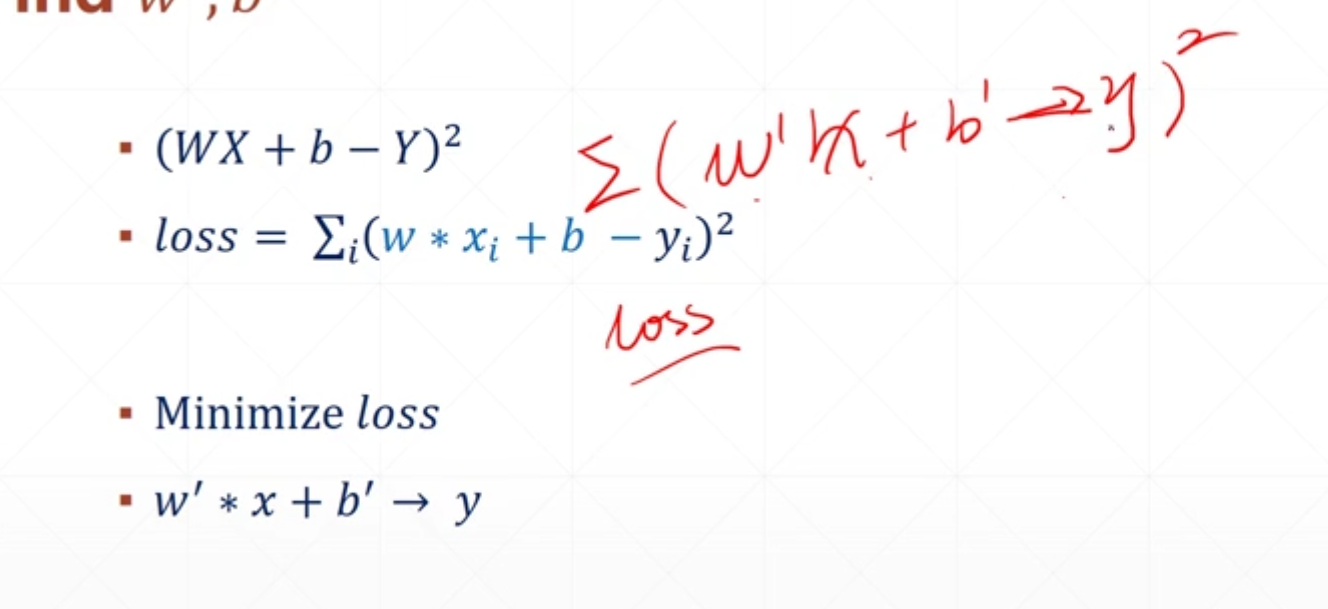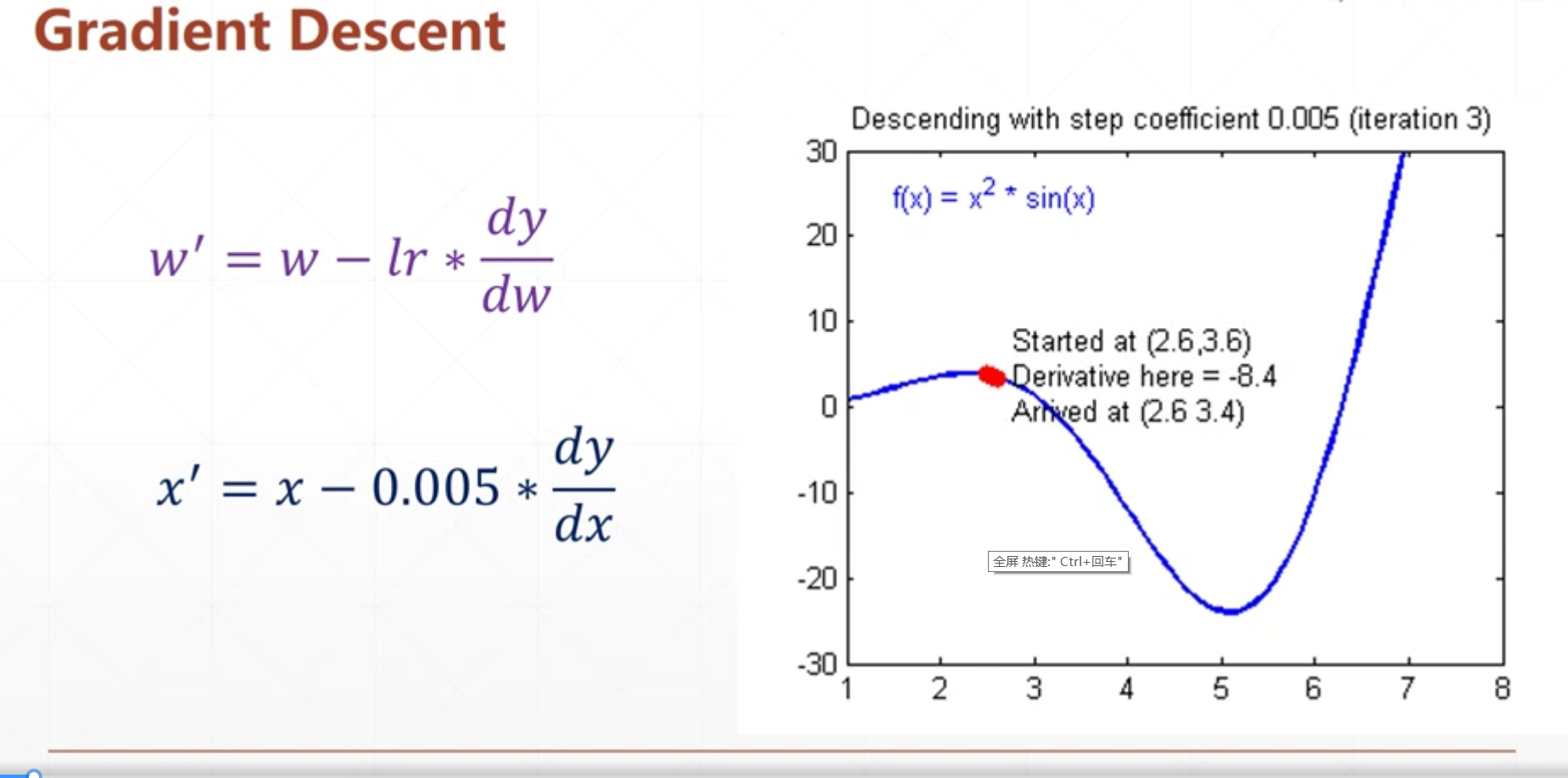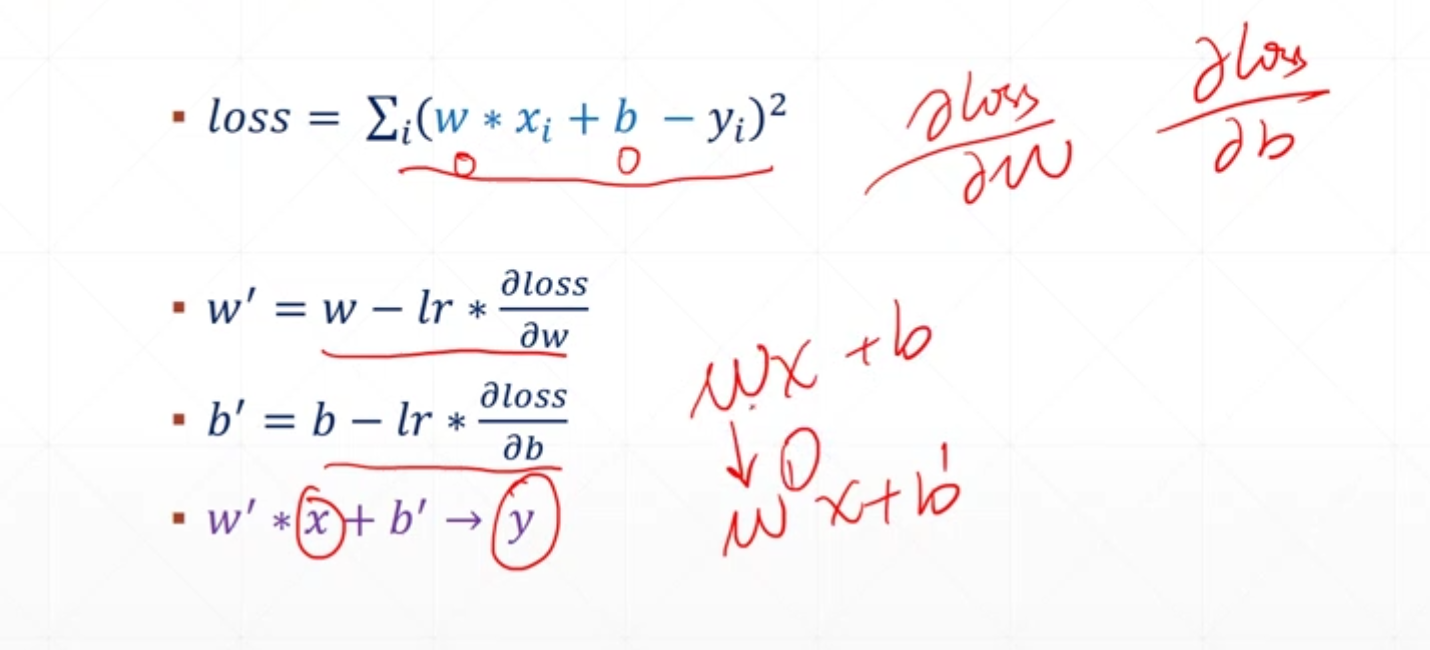



对数组的线性回归预测:
import numpy as np # y = wx + b def compute_error_for_line_given_points(b, w, points): totalError = 0 for i in range(0, len(points)): x = points[i, 0] y = points[i, 1] # computer mean-squared-error totalError += (y - (w * x + b)) ** 2 # average loss for each point return totalError / float(len(points)) def step_gradient(b_current, w_current, points, learningRate): b_gradient = 0 w_gradient = 0 N = float(len(points)) for i in range(0, len(points)): x = points[i, 0] y = points[i, 1] # grad_b = 2(wx+b-y) b_gradient += (2/N) * ((w_current * x + b_current) - y) # grad_w = 2(wx+b-y)*x w_gradient += (2/N) * x * ((w_current * x + b_current) - y) # update w' new_b = b_current - (learningRate * b_gradient) new_w = w_current - (learningRate * w_gradient) return [new_b, new_w] def gradient_descent_runner(points, starting_b, starting_w, learning_rate, num_iterations): b = starting_b w = starting_w # update for several times for i in range(num_iterations): b, w = step_gradient(b, w, np.array(points), learning_rate) return [b, w] def run(): points = np.genfromtxt("data.csv", delimiter=",") learning_rate = 0.0001 initial_b = 0 # initial y-intercept guess initial_w = 0 # initial slope guess num_iterations = 1000 print("Starting gradient descent at b = {0}, w = {1}, error = {2}" .format(initial_b, initial_w, compute_error_for_line_given_points(initial_b, initial_w, points)) ) print("Running...") [b, w] = gradient_descent_runner(points, initial_b, initial_w, learning_rate, num_iterations) print("After {0} iterations b = {1}, w = {2}, error = {3}". format(num_iterations, b, w, compute_error_for_line_given_points(b, w, points)) ) if __name__ == '__main__': run()
